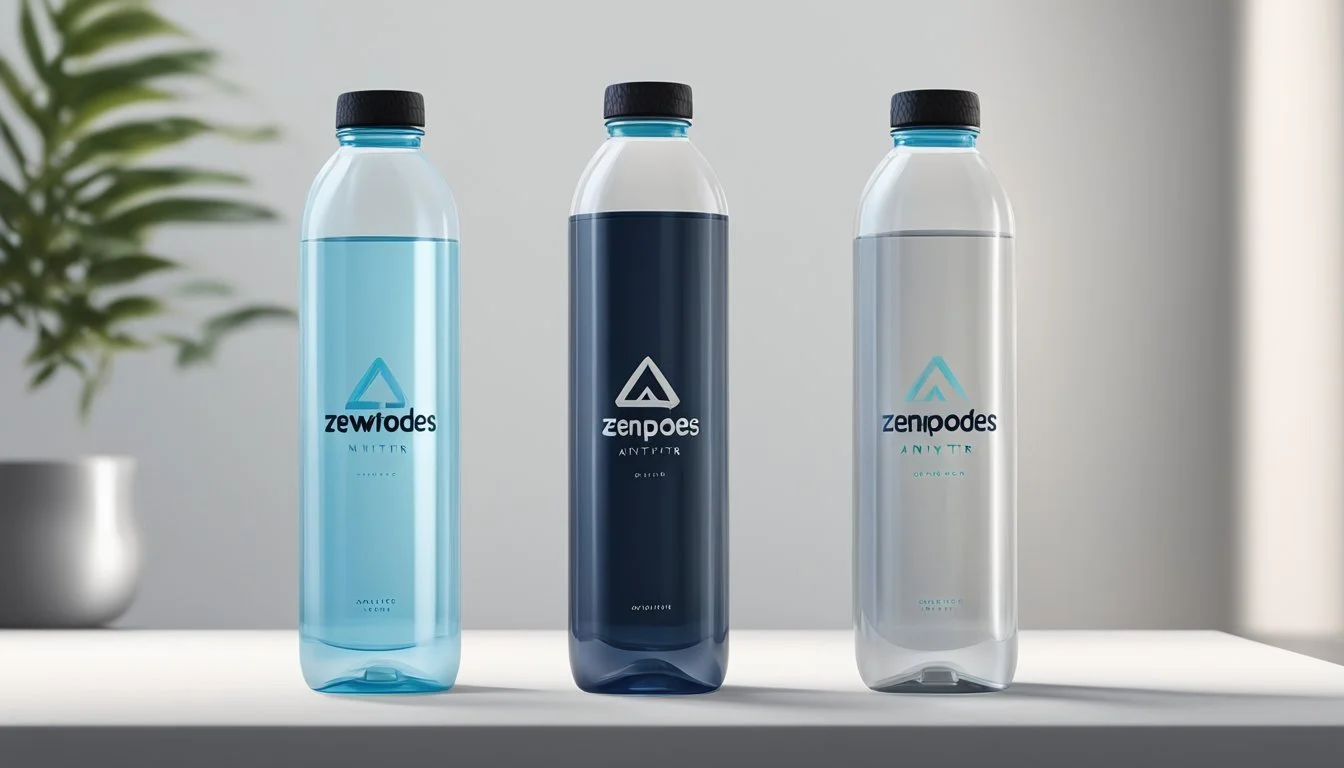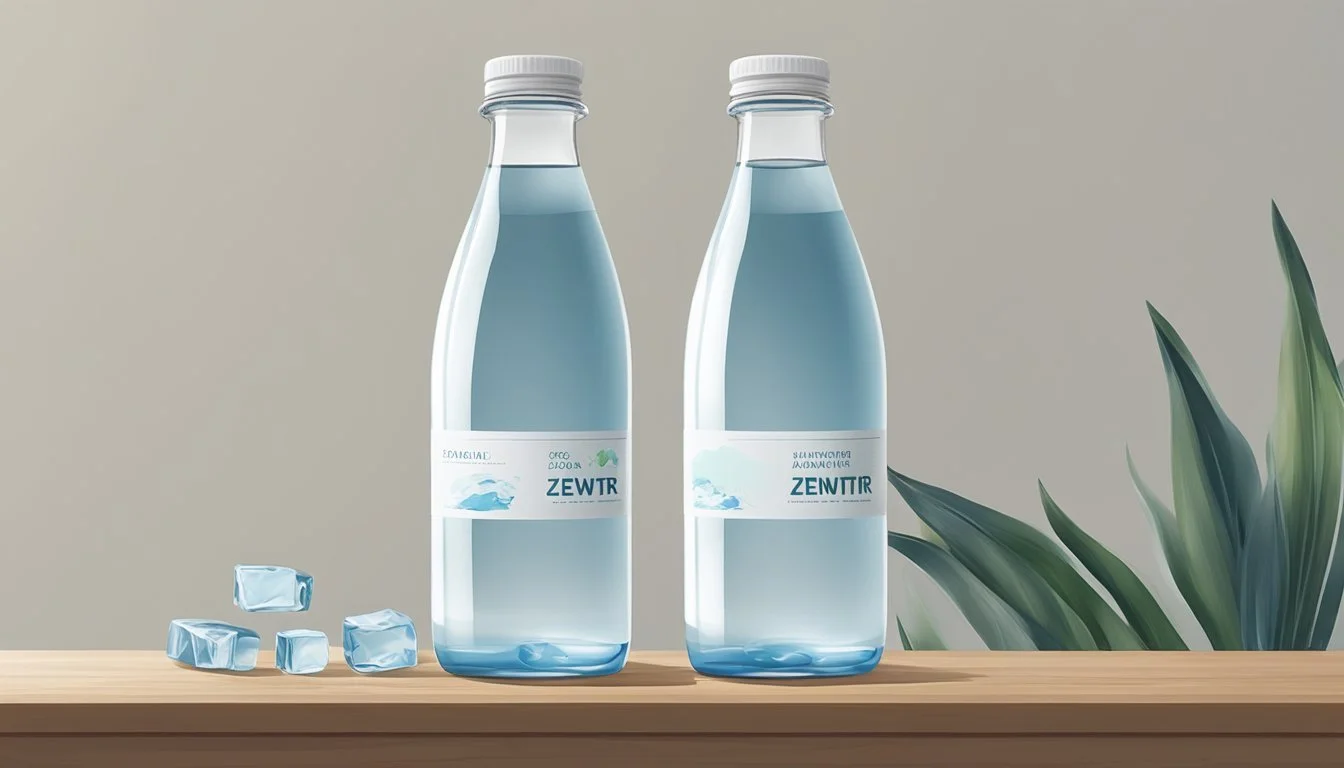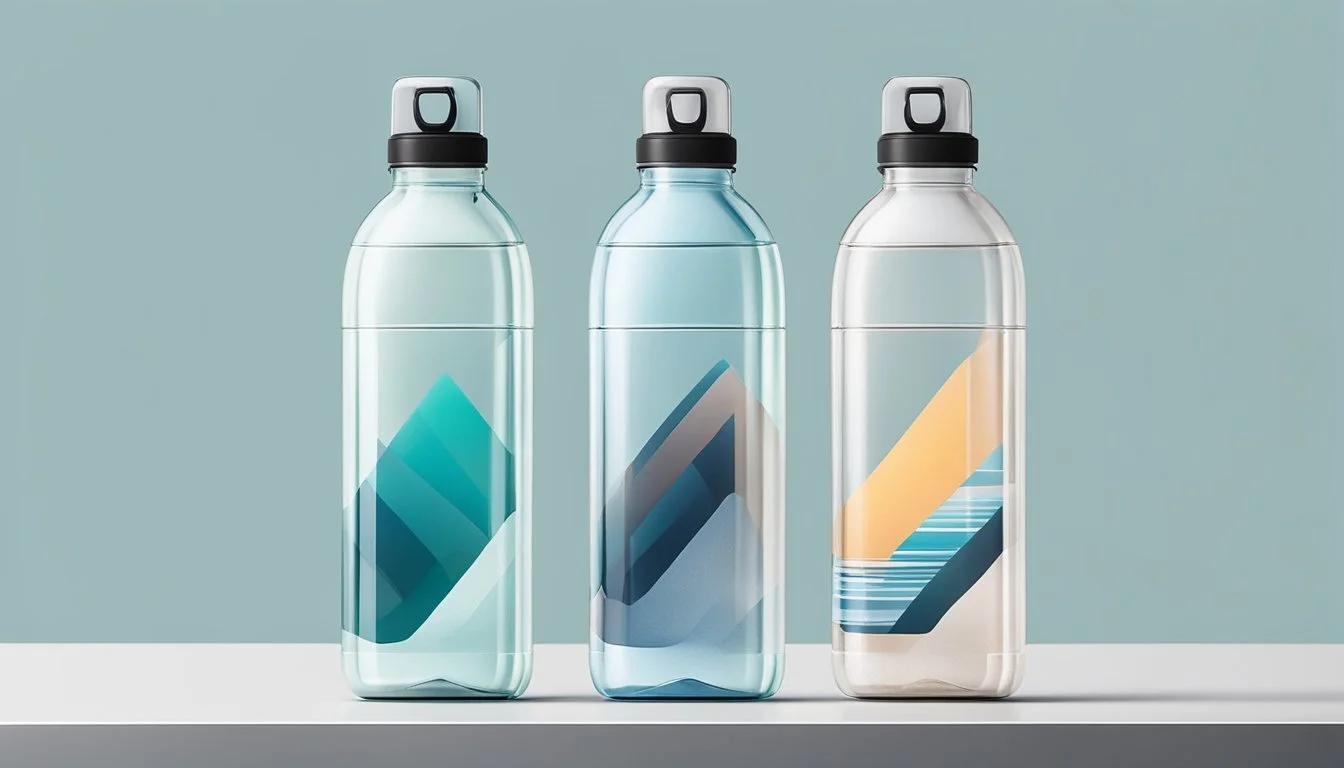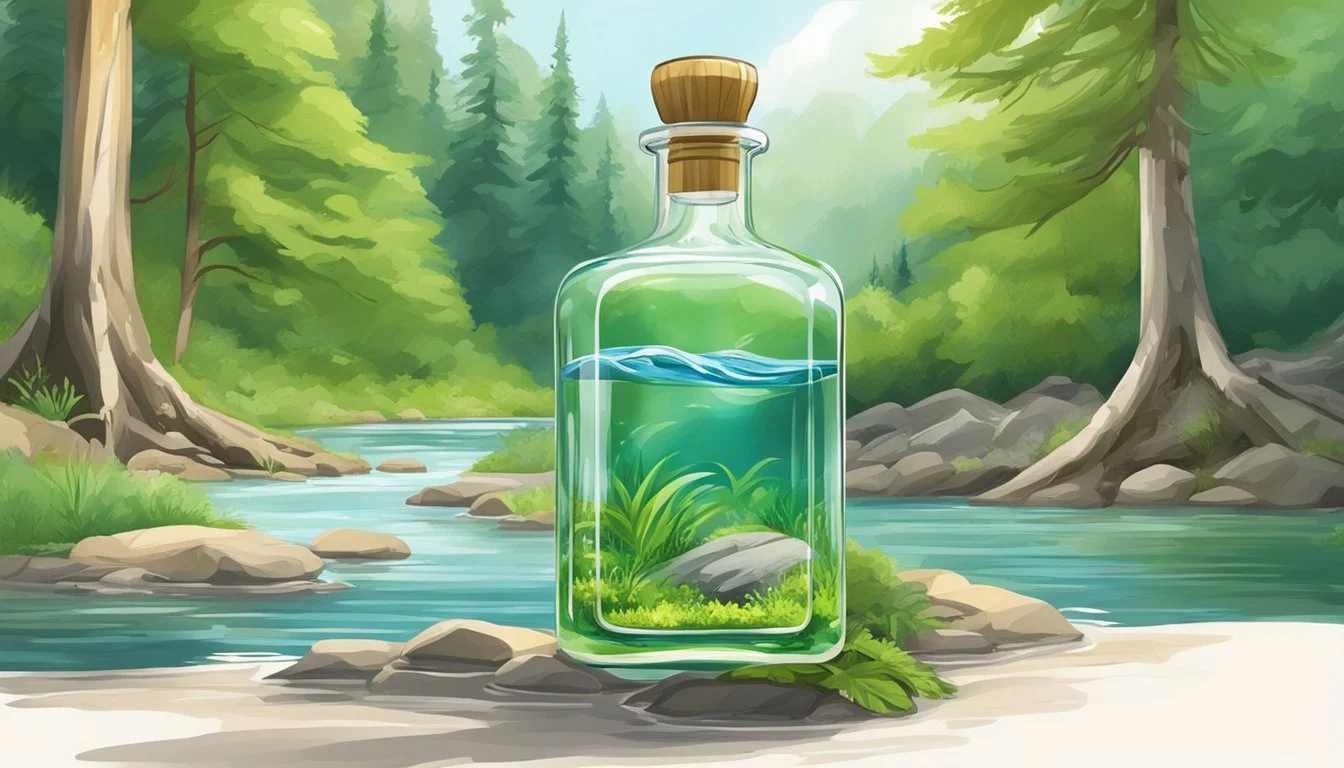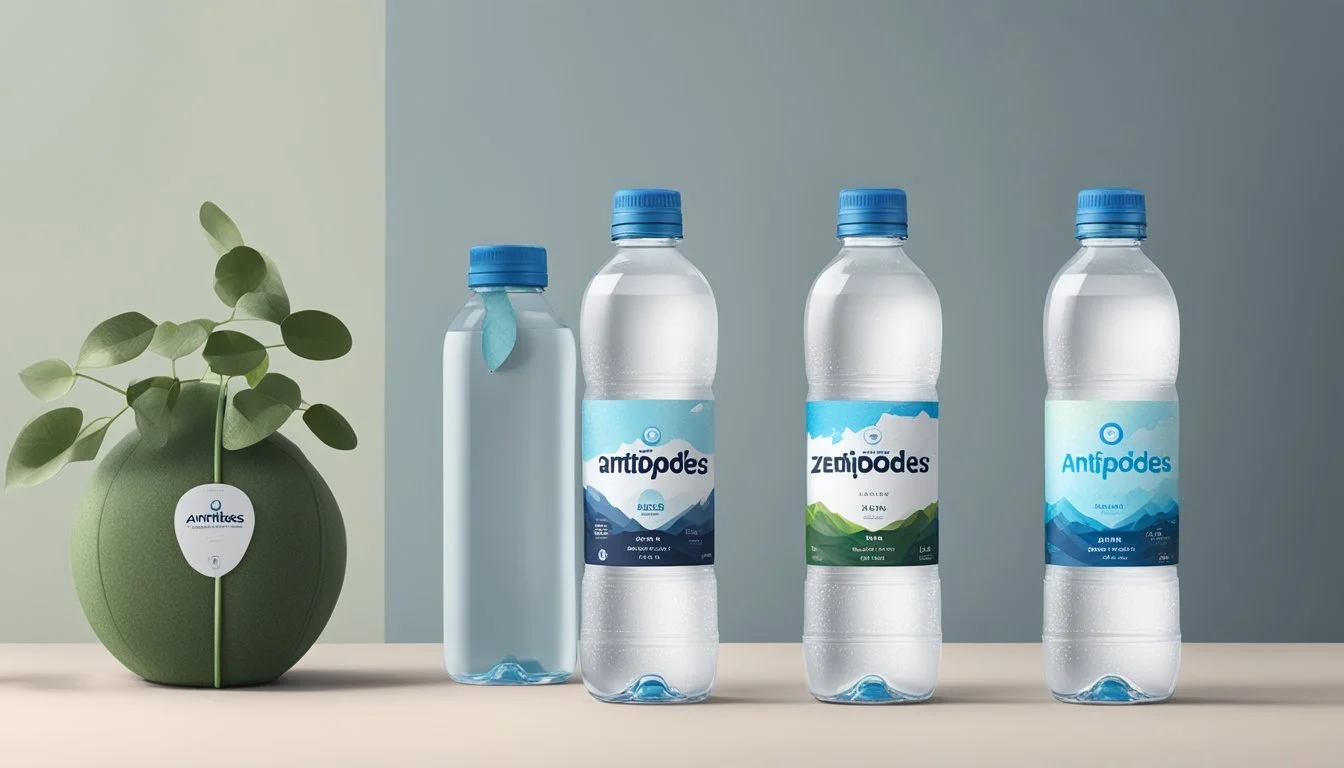Antipodes vs. Zenwtr
Ultimate Bottled Water Showdown
Choosing the right bottled water can feel like a daunting task, especially with premium brands like Antipodes and ZenWTR making strong claims about their benefits. Antipodes, known for its purity and sustainability, offers spring water sourced from an ancient aquifer in New Zealand. ZenWTR stands out with its naturally alkaline water and strong commitment to environmental responsibility, featuring bottles made from 100% recycled ocean-bound plastic.
When it comes to health benefits, both brands offer distinct advantages. Antipodes provides a smooth, clean taste from its deep-source spring water, appealing to those who prioritize natural purity. On the other hand, ZenWTR boasts a high pH level of 9.5, making it an attractive option for those seeking alkaline water to balance their body's pH levels.
From eco-friendliness to taste profiles, each brand brings its unique qualities to the table. Antipodes’s minimalist approach to bottling complements its transparent sourcing, whereas ZenWTR’s environmental initiatives and distinct alkaline profile cater to health-conscious individuals. Choosing between them ultimately depends on your personal priorities and tastes.
The Rise of Bottled Water
The bottled water industry has experienced significant growth due to changing consumer preferences, increasing health awareness, and rising global sales. Various factors have contributed to its popularity, including convenience, perceived health benefits, and environmental considerations.
Market Trends and Consumer Behavior
Consumer behavior is a driving force behind the rise of the bottled water market. Increasing health consciousness has led people to prefer bottled water over sugary drinks. Convenience also plays a significant role. Busy lifestyles make bottled water an easy choice for hydration on the go. Environmental concerns are impacting choices too, with brands using recycled materials gaining favor.
Trends show a preference for alkaline and mineral waters, perceived as healthier options. This shift influences marketing strategies, with brands emphasizing purity, natural sources, and health benefits. ZenWTR, for example, markets its environmental missions and natural alkalinity to attract eco-conscious consumers.
Sales Growth and Bottled Water Popularity
Global sales of bottled water have grown remarkably over the past decade. According to industry reports, sales from 109 countries grew by 73% between 2010 and 2020. This growth is driven by factors like increased urbanization, improved marketing strategies, and the premiumization of water products.
Premium bottled waters, such as those enhanced with minerals or sourced from specific regions, command higher prices. This segment contributes significantly to overall market value. ZenWTR, for example, appeals to a specific niche market with its natural alkalinity and sustainable packaging. Store availability in places like Whole Foods Markets nationwide also boosts sales.
Hydration and Health Awareness
Awareness of the importance of hydration for health has boosted bottled water consumption. People are increasingly aware of the benefits of drinking adequate water, such as improved physical performance, mental clarity, and skin health. Bottled water offers a reliable source of hydration.
Brands emphasize these health benefits in their marketing. For example, Antipodes highlights its natural mineral content, and ZenWTR focuses on its high pH level. This health-oriented messaging appeals to consumers looking to make healthier lifestyle choices. Bottled water's role in facilitating daily hydration is crucial in its rising popularity.
By understanding these aspects, it's clear why the bottled water industry continues to flourish, appealing to a wide range of health-conscious and convenience-driven consumers.
Understanding Antipodes and ZenWTR
Antipodes and ZenWTR are distinguished by their unique origins and environmental commitments. Both brands emphasize sustainability, although their approaches and practices differ.
Brand History and Origin
Antipodes originates from New Zealand, a country renowned for its pristine natural resources. Founded with the mission to provide high-quality, artesian water, the brand sources its water from an ancient aquifer, ensuring minimal environmental impact.
ZenWTR, on the other hand, is an American startup focused on reducing plastic pollution. Founded with a sustainable vision, ZenWTR offers alkaline water with a pH of 9.5, boasting naturally balanced alkalinity. The company highlights its commitment to protecting the oceans by utilizing 100% recycled plastic bottles.
Bottling and Distribution Practices
Antipodes prioritizes eco-friendly bottling practices, using glass bottles to minimize plastic waste. The water undergoes minimal processing to maintain its natural purity and taste, focusing on sustainable extraction methods that protect the aquifer's longevity.
ZenWTR employs advanced triple-filtration techniques in its bottling process, ensuring high-quality, clean water. The brand's use of ionized alkaline water sets it apart. More importantly, ZenWTR’s bottles are made entirely from recycled ocean-bound plastic, showcasing its strong environmental advocacy. This not only reduces plastic waste but also aids in ocean cleanup efforts.
By focusing on these areas, readers can gain a comprehensive view of how Antipodes and ZenWTR distinguish themselves in the competitive bottled water market.
Health and Environmental Impact
Both Antipodes and ZenWTR aim to promote health benefits through hydration while addressing environmental concerns, including ocean conservation and plastic pollution. This section examines these aspects in detail.
Health Benefits of Hydration
Hydration is crucial for various bodily functions. Antipodes offers pure, naturally sourced water, which is free from contaminants. ZenWTR features a pH of 9.5, categorizing it as alkaline water. Alkaline water proponents suggest it helps reduce acid levels in the body, promoting overall well-being. Both brands ensure their water is free from harmful additives, thus promoting a healthy lifestyle.
Environmental Friendliness
Antipodes and ZenWTR emphasize environmentally friendly practices. Antipodes uses glass bottles, which are highly recyclable and contribute less to plastic waste. ZenWTR, on the other hand, uses bottles made from 100% recycled ocean-bound plastic. This decision aims to minimize new plastic production, showcasing their commitment to sustainability. Consumers looking for sustainable packaging solutions will find both brands dedicated to eco-friendly initiatives.
Ocean Conservation Efforts
ZenWTR takes active steps towards ocean conservation. By utilizing ocean-bound plastic for their bottles, they help clean up ocean debris. This effort aligns with global initiatives aimed at reducing marine pollution. Antipodes, though not specifically focused on ocean conservation, supports environmental causes through various affiliations and practices. Their commitment underscores the importance of protecting our water bodies.
Plastic Pollution and Waste Management
Addressing plastic pollution, ZenWTR’s use of recycled ocean-bound plastic directly tackles the issue by repurposing waste. This approach helps reduce the influx of new plastic into the environment. Antipodes’s choice of glass bottles eliminates the concern of plastic waste altogether. Both companies highlight the importance of recycling programs and the role consumers play in waste management through responsible disposal and recycling practices.
Bottle Design and Materials
The design and materials of Antipodes and ZenWTR bottles highlight their aesthetics, ergonomics, and sustainability commitments. This section explores the unique features and environmental efforts of each brand.
Bottle Aesthetics and Ergonomics
Antipodes bottles are known for their sleek, minimalist design. The glass bottles feature clean lines and a simple, elegant logo that appeals to upscale markets. The ergonomics of the design make the bottle comfortable to hold and pour from, although the glass can be heavier and more fragile than other materials.
ZenWTR, on the other hand, offers bottles made from recycled PET (rPET) as well as newer additions in aluminum and glass. Their bottle design focuses on practicality and environmental impact. The lightweight rPET bottles are easy to carry, while the aluminum and glass options cater to various consumer preferences.
Materials and Environmental Credentials
Antipodes primarily uses glass for its bottles. Glass is beneficial because it is 100% recyclable and does not leach any chemicals into the water. This material enhances the overall quality and purity of the water. Glass, however, requires significant energy to produce and recycle.
ZenWTR sets itself apart by utilizing 100% recycled PET (rPET) from certified ocean-bound plastic. This helps reduce plastic pollution and promotes a circular economy. The introduction of aluminum and glass options provides consumers with a range of sustainable choices. Each material is selected to minimize environmental impact while maintaining product integrity.
Sustainability in Supply Chain
Antipodes emphasizes a sustainable supply chain by sourcing glass from renewable resources and supporting local bottling processes. The brand strives to minimize its carbon footprint with efficient production techniques and transportation methods.
ZenWTR's commitment to sustainability extends throughout its supply chain. By repurposing ocean-bound plastics, the company tackles pollution directly, ensuring its bottles contribute to environmental preservation. ZenWTR also prioritizes energy efficiency and carbon offset programs to reduce its overall environmental impact.
Both Antipodes and ZenWTR emphasize sustainability, but ZenWTR's innovative use of recycled materials presents a compelling case for environmentally conscious consumers.
Water Quality and Sources
When comparing Antipodes to ZenWTR, several important factors about water quality and sources stand out. These include the pH levels, mineral content, origin of the water, and the purification processes used.
PH Levels and Alkalinity
Antipodes and ZenWTR both emphasize the importance of alkaline water for health benefits. Antipodes has a pH level of 7.8, making it slightly alkaline, while ZenWTR boasts a higher pH of 9.5, providing a more alkaline option.
Alkaline water is believed to neutralize acid in the bloodstream, boost metabolism, and improve absorption of nutrients. ZenWTR’s higher pH level may appeal more to those specifically seeking these benefits.
Mineral Content and Health Impact
Mineral content is crucial for bottled water, impacting both taste and health benefits. Antipodes is known for its balanced mineral content, including calcium, magnesium, and bicarbonate. This composition contributes to its clean taste and slight minerality.
On the other hand, ZenWTR also contains beneficial minerals but emphasizes its electrolytes content. Electrolytes are essential for hydration and maintaining bodily functions, making ZenWTR a compelling choice for active individuals.
Source and Purity
The source of the water significantly impacts its purity and taste. Antipodes is sourced from a deep artesian aquifer in New Zealand, providing naturally pure water free from contaminants. The isolated location ensures minimal human impact and pollution.
ZenWTR, sourced from a sustainable underground aquifer in the mountains, offers a pristine water source. Additionally, ZenWTR is packaged in bottles made from 100% recycled ocean-bound plastic, appealing to eco-conscious consumers.
Purification Process and Quality Control
Purification processes and quality control measures ensure bottled water meets safety and purity standards. Antipodes undergoes a thorough filtration process that retains its natural minerals while removing impurities, ensuring high-quality water.
ZenWTR uses a meticulous filtration process, which includes reverse osmosis and UV light treatment. These steps eliminate contaminants and ensure the water’s purity. Both brands maintain strict quality control measures to offer a safe and refreshing product.
Comparing these aspects, both Antipodes and ZenWTR offer unique advantages in terms of pH levels, mineral content, and purification processes. The choice ultimately depends on individual preferences and priorities regarding health benefits and environmental impact.
Comparing Taste and Flavor
ZenWTR prides itself on its alkaline nature, boasting a pH of 9.5. This gives it a smooth and clean taste. It often has a slightly tangy finish but doesn’t leave a strong aftertaste.
Antipodes is a natural artesian water sourced from New Zealand. Its neutral pH provides a crisp and pure flavor. The taste is often described as having a soft mouthfeel with no lingering aftertaste.
Flavor Profile Table
Attribute ZenWTR Antipodes pH Level 9.5 (alkaline) 7.0 (neutral) Mouthfeel Smooth, clean Soft, pure Aftertaste Slightly tangy None
Many consumers find that ZenWTR has a distinctive, refreshing quality. Its higher pH level is often appreciated by those who prefer alkaline water for its purported health benefits.
Antipodes is favored for its completely neutral taste, making it a go-to for those who prefer an uncomplicated water with a natural origin. Its flavor profile remains consistently crisp, which some people find more pleasant.
Both brands avoid the plastic-like taste that can be present in lower-quality bottled waters, ensuring a high-quality drinking experience.
Packaging and Brand Presentation
Antipodes presents a sleek, minimalist aesthetic with clear glass bottles. Their design reflects an eco-conscious approach, emphasizing recycled and recyclable materials. Antipodes offers an environmentally friendly choice, appealing to those who prioritize sustainability in their purchasing decisions.
ZenWTR differentiates itself by utilizing bottles made from 100% recycled, certified ocean-bound plastic (rPET). This unique packaging choice highlights their commitment to reducing ocean plastic pollution. The brand has recently expanded its packaging options to include aluminum and glass bottles to cater to varied consumer preferences.
Comparison Table:
Brand Material Eco-Attributes Design Antipodes Glass Recycled, recyclable Minimalist, sleek ZenWTR Ocean-bound rPET, Aluminum, Glass 100% recycled ocean-bound plastic, certified plastic negative Diverse options, eco-conscious, focuses on reducing ocean pollution
They both emphasize recycling education. While Antipodes focuses on simplicity and sustainability, ZenWTR pushes for significant environmental impact by addressing ocean plastics.
Their branding aligns with their packaging choices. Antipodes's clear and clean design mirrors its commitment to purity and simplicity. ZenWTR's diverse packaging underscores its innovative approach to eco-conscious consumption, appealing to customers looking for responsible options.
Price Point and Value
Antipodes and ZenWTR cater to different segments of the bottled water market.
Antipodes water often retails at around $7 per liter. This premium price is justified by its origin from a New Zealand aquifer and its packaging in a tasteful glass bottle. It positions itself as a high-end option, typically found in upscale grocery stores and specialty shops.
ZenWTR typically has a higher price compared to average bottled waters but slightly lower than Antipodes. A bottle of ZenWTR can range from $2 to $4. This water promotes a pH of 9.5, making it an attractive choice for health-conscious consumers. Its value proposition includes environmental considerations since it aims to reduce plastic pollution.
Despite the higher cost, both brands justify their prices through quality and unique selling points.
Here's a simple comparison in a table format:
Brand Price (per liter) Market Position Key Value Propositions Antipodes ~$7 High-end, premium Origin from NZ aquifer, glass bottle ZenWTR $2-$4 Mid to high-end, sustainability-focused High pH, eco-friendly packaging
When considering value for money, ZenWTR offers more affordability while still providing high quality and environmental benefits. Antipodes, though pricier, offers an exclusive experience tied to its source and packaging.
Customers need to weigh their priorities—whether it is luxury and exclusivity with Antipodes or a balance of health benefits and sustainability with ZenWTR. Both brands are typically available in various grocery stores and online, making them accessible depending on consumers' preferences and budget.
Consumer Trust and Certifications
Antipodes and ZenWTR both prioritize sustainability and consumer trust through various certifications and initiatives.
ZenWTR stands out with its use of certified ocean-bound plastic for its bottles, significantly contributing to reducing ocean plastic pollution. Each bottle is made using 100% post-consumer recycled plastic (rPET), demonstrating a commitment to environmental stewardship.
Consumers appreciate ZenWTR's transparency and dedication. Their 9.5 pH water is ultra-purified and vapor-distilled, ensuring high quality without added chemicals. This process boosts consumer confidence in the purity and safety of the product.
Antipodes doesn't specifically mention certified ocean-bound plastic but emphasizes a strong plastic negative initiative. For every bottle sold, Antipodes commits to removing twice the amount of plastic from the environment as used in its production. This proactive approach resonates well with eco-conscious consumers.
Both brands participate in recycling programs. Antipodes often partners with local recycling initiatives to encourage responsible disposal. ZenWTR integrates education on recycling into its branding, further strengthening consumer trust.
EPA compliance is another significant factor. Both Antipodes and ZenWTR ensure their production processes meet stringent environmental standards, ensuring consumers that their products are safe and responsibly sourced.
Brand Certified Ocean-Bound Plastic Plastic Negative EPA Compliance Recycling Programs Antipodes No Yes Yes Local initiatives ZenWTR Yes No Yes Brand-integrated education
Building consumer trust goes beyond the product itself. Both brands apply rigorous certifications and programs to support environmental sustainability and consumer responsibility. This commitment remains essential for gaining and maintaining trust in the bottled water market.

